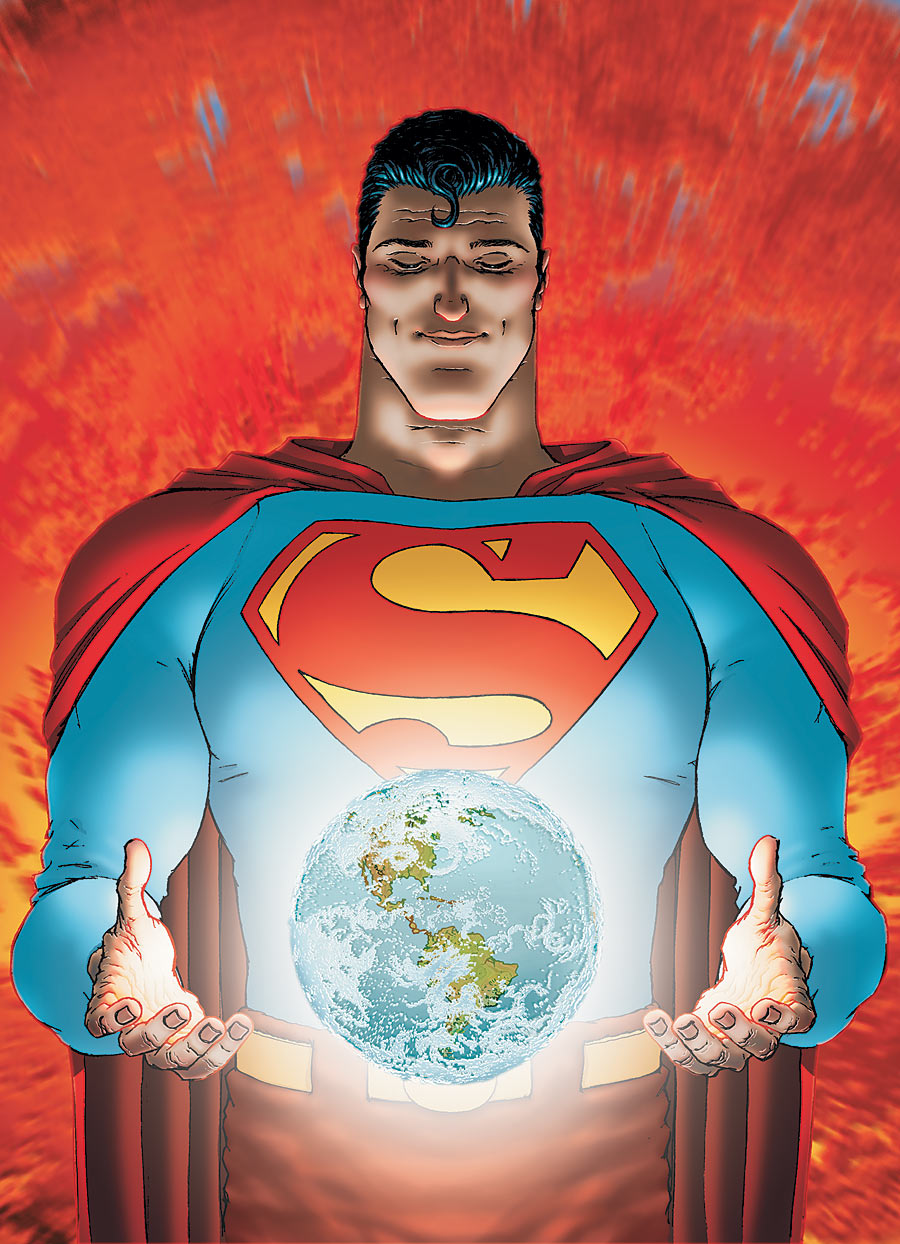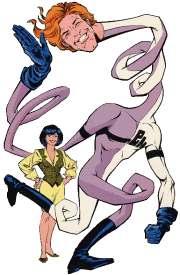We just aren’t. It’s never going to
happen, deal with it. Warner Brothers certainly seems to disagree: the opening
weekend success of Man of Steel
has them absolutely bullish on a Justice League movie and supposedly David
Goyer has been given the go ahead to start working on the script. To them, the
new Superman movie can serve as the first step down the path to making DC’s
equivalent of the Marvel Cinematic Universe (MCU).
This optimism is expected from a business perspective, but
creatively it makes me wonder if they actually bother to watch the movie they
just put out. Because to me, Man of
Steel not only won’t be able to feed into a Justice League film, it
likely killed off the possibility of that project ever happening.
Look, Justice
League was always going to be a bit harder of a sell than The Avengers. For all their
superpowers, Marvel’s heroes are for the most part relatively mortal (give or
take an invincible rage monster or two) and were designed with
interaction in mind. DC’s heavy hitters are…not. Of the seven characters most
likely to fill out the JL roster1, only three of them are human. Discounting
the guy with alien-granted ‘do anything’ jewelry and the one who can outrun
death and we’re left with only Batman as the only typical ‘grounded’ hero, for
definitions of grounded that include “owns dozens of tanks, stealth jets, and a
monitoring system that would make PRISM wet its pants.” Relatability, then,
becomes the watchword, and while blending these characters into an engrossing
story isn’t impossible, it’s still a task with a built-in handicap.
Of course even apart from the script, every superhero
blockbuster must inevitably erupt into action sequences, and it’s here that Man of Steel should be the final
nail in Justice League’s coffin. Ensemble
action movies need to allow every member of the team get something unique to do
in a fight. This is vital: it lets each character show the audience what makes
them special enough to be worth caring about. Obviously some characters can be
more effective than others when push comes to shove; in The Avengers, Hawkeye and Black Widow took down a couple
dozen aliens combined while Thor and Hulk were blasting entire leviathans and
Iron Man nuked a full armada. But even there, the two unpowered Avengers each
fulfilled a specific tactical role and contributed to what was very much a team victory.
In contrast, we’re one movie into what Warner Bros hopes
will become it’s “DCCU”2 and I’m already seeing some disparities in strength and
scale of DC’s heroes that make Hawkeye v. Hulk look like a fair fight. Take
Batman. In the comics Bruce Wayne can be shown outthinking and outmaneuvering
villains with enough skill to put him on an even playing field with Kryptonians
and metahumans. In a Man of Steel
world however? Batman would be flattened and killed before he could even draw a
batarang. MoS’s fight scenes
are astonishing, the purest depiction of superhumans just letting loose on each
other we’ve yet seen. But in upping the bar for superpowered throwdowns to a
point where brawls inflict $700 billion dollars of damage in minutes,
Warner Bros has created a world that is incapable of supporting characters like
Batman, no matter how many Wayne Industries satellites they want to toss into their
scripts. The way they’ve translated Superman’s abilities onto the big screen
puts him so far out of Batman’s league that the Dark Knight’s presence
alongside him would shatter all suspensions of disbelief.3
Just for the sake of argument however, let’s say the Batman
Problem is solved. Maybe DC gives him a crazy battlesuit, or even cuts him out
entirely4. Then we’re left with a team of Superman-level heroes, which has its
own problem. Namely, you have a whole team of characters as powerful as
Superman. As well-done as Man of
Steel’s action was, the fights were so grand in scope and lasted so
long that after a while a sense of ‘action fatigue’ set in. And that was what happened when one god-like entity throws down. Multiply
that by seven and the result would be an overload of spectacle. There’s a limit
to how much audiences can process at once and if MoS is the baseline then unleashing the full Justice League
would result in action that is either incomprehensibly busy or exhausting to
watch. When everything is epic and over-sized, nothing is actually special.
So DC and Warner Brothers are left deciding between having
the most lopsided roster since Angel Summoner & BMX Bandit or an
overwhelming – and by extension, bland – group of gods. They can’t scale down
Superman after Man of Steel
without appearing to be moving backwards. They don’t even have an obvious
option for a villain for their heroes to be fighting against.5 And so I’m
calling it: bye bye Justice League.
The idea of you had a good run, but it’s time to throw in the towel.
Oh well, there’s always the cartoon…
1: Superman, Batman, Wonder Woman, The Flash, Green Lantern
(hopefully anyone but Hal Jordan), Martian Manhunter, and Aquaman. The first
five would pretty much be locks, substitute Hawkman/woman, Cyborg, or Plastic
as needed. Or Vibe if they’re f*cking with us.
2: Working title
3: This would only be made more obvious when Batman is
inevitably one of the two main characters. People can still argue Hawkeye’s
general usefulness but he also received the least screentime of his team.
4: Hahahahahahahahahahahahahahahahahahahahahahahahahahahahahahahahahaha
5: They had
Darkseid, but Marvel preemptive introduction of Thanos into the MCU is an ingenous
way to ensure DC’s best option would be constantly compared against his own
knockoff.















































